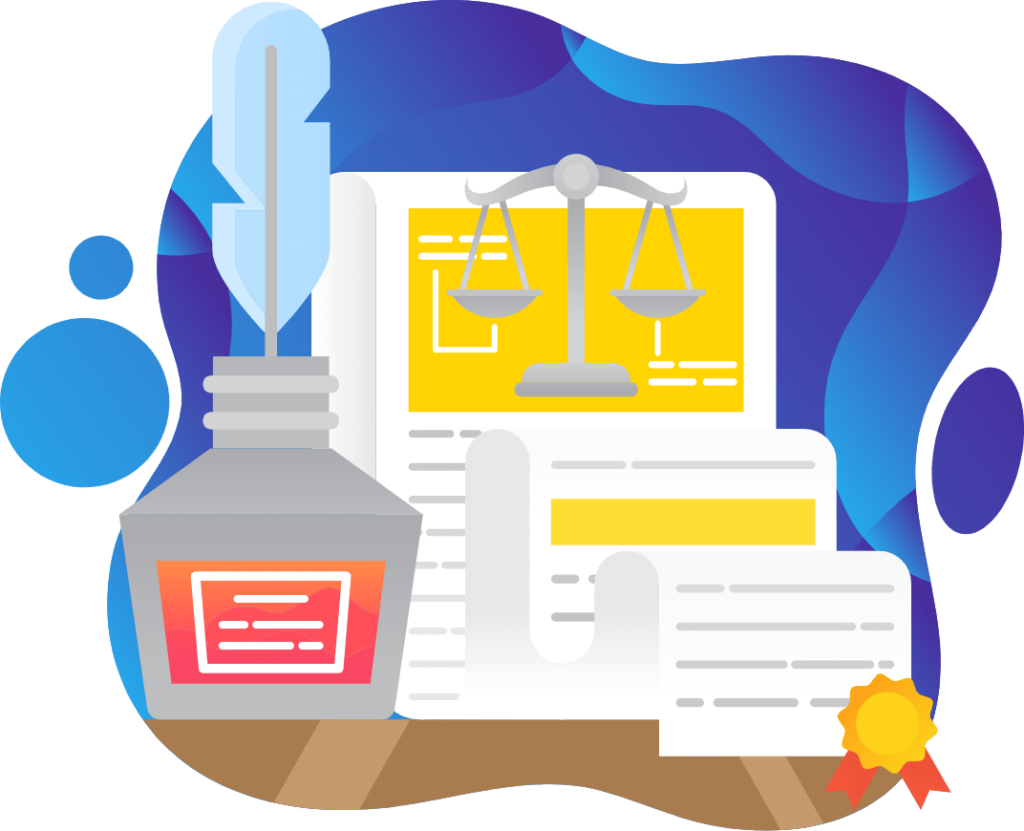Criminal Records
The Benefits of Our Criminal Records

Nationwide Coverage
Our multi-jurisdictional criminal records database search accesses available sources in all 50 states, Washington D.C., and native tribes. Sex offender registry included.

FCRA Compliant Matching
Our FCRA compliant, heuristic matching enhances the accuracy of our criminal record database and weeds out false positive matches due to common names.

Quality Control
Criminal convictions are routinely updated from courts across the U.S. To maintain quality records, we also routinely remove duplicate records, expungements, and more.

Fast Delivery
Time is money that you can never get a refund on. Our API allows for delivery speeds at as fast as 1.5 seconds per inquiry.
Customization Options
Clients can customize settings affecting the criminal records they receive for their products, solutions and permissible purposes.
Eviction Records
The Benefits of CIC's Public Eviction Records

Quality Control
We update our eviction database daily to ensure there are no duplicates and the records meet our standards.

FCRA Compliant
Our records are FCRA compliant. Paired with CIC's Regulatory Compliance tool, we help reduce legal liabilities.

Complete Eviction Records
We provide quality judgment information, including unlawful detainers, property damage claims, and more.

Fast Delivery
As a risk management solution, we know time is money. Our average time for eviction records is 1.5 seconds.
What's Included in Our Unique Nationwide Criminal Records Database?
Take your risk mitigation process to the next level with our criminal public records. Whether you need court records in North Carolina or sex offender registry records in West Virginia, our criminal records database accesses available sources in all 50 states + D.C., and may include:*
- Sex offender registry
- Prison/inmate records
- Court & incarceration records
- Wants & warrants
- Probation, parole, and/or release information
- All known aliases
- Traffic records**
*CIC does not engage in the commercial exchange, sale, or resale of case documents. Court documents such as pleadings, motions, and briefs related to a case are not included. CIC maintains a strict adherence to legal and ethical standards in accordance with the Fair Credit Reporting Act and other state regulations.
**Some traffic and infraction records may be redacted in consideration of different state requirements or for the purpose of the report requested.

How Criminal Public Records can Help You Mitigate Business Risk
While many companies only utilize criminal history while hiring employees, criminal records can be used beyond H.R. to analyze potential risk(s).
Some banks incorporate criminal history into their risk evaluation process for loans (particularly SBA loans). The rental housing industry also commonly takes past criminal history into account when determining if their applicants meet their rental standards. Overall, criminal records are often used to analyze potential risk(s) in order to protect the company’s assets, employees, other residents, or to do their due diligence when extending financial offers.
How We Filter Public Criminal Records
With over a billion public criminal records within our nationwide database, we take pride in our rigorous quality standards. Our public records are updated from courts around the U.S. and delivered on a transactional basis per inquiry. Contemporary Information Corp.’s heuristic name matching methodology is FCRA compliant and includes an alias search to enhance accuracy when calculating risk.

Let's Talk Numbers
Criminal Records
with Date of Birth (DOB)
Jurisdictions
Unrivaled Identity Matching
As a risk mitigation solution with multi-jurisdictional criminal records, we pride ourselves on maintaining fast and accurate name matching technology. As the criminal information provided by each jurisdiction throughout the country might vary, CIC’s Social Trace helps narrow down your records search and confirms identity.
Let's Talk!
Frequently Asked Consumer Questions
If you’re a renter or a consumer, we’ve got answers to your questions!
Are criminal records public?
Yes, most criminal court records are public records. However, there are circumstances in which a record could be expunged (removed from public record) or sealed.
Additionally, the National Crime Information Center (NCIC) database is maintained by the FBI and is not available for public viewing. Records within this database can only be accessed by an approved local, state, or federal law enforcement agency.
Can I get a criminal record expunged (removed from public record)?
Maybe. Some states allow criminal conviction records to be expunged or sealed. However, typically the judge would need a valid reason.
If you would like to dispute information being reported against you or request a copy of your report, click here.
MOBILE BELOW

Criminal Records
The Benefits of Our Criminal Records

Nationwide Coverage
Our multi-jurisdictional criminal records search accesses available sources in all 50 states, Washington D.C., and native tribes. Plus, it includes the sex offender registry.

Quality Control
Criminal convictions are routinely updated from courts across the U.S. To maintain quality records, we also routinely remove duplicate records, expungements, and more.

FCRA Compliant Matching
Our FCRA compliant, heuristic matching enhances the accuracy of our criminal record database and weeds out false positive matches due to common names.

Fast Delivery
Time is money that you can never get a refund on. Our API allows for delivery speeds at as fast as 1.5 seconds per inquiry.
Customization Options
Clients can customize settings affecting the criminal records they receive for their products, solutions and permissible purposes.

What's Included in Our Unique Nationwide Criminal Records?
Take your risk mitigation process to the next level with our criminal public records. Whether you need court records in North Carolina or sex offender registry records in West Virginia, our criminal records database accesses available sources in all 50 states + D.C., and may include:*
- Sex offender registry
- Prison/inmate records
- Court & incarceration records
- Wants & Warrants
- Probation, parole, and/or release information
- Traffic records**
*CIC does not engage in the commercial exchange, sale, or resale of case documents. Court documents such as pleadings, motions, and briefs related to a case are not included. CIC maintains a strict adherence to legal and ethical standards in accordance with the Fair Credit Reporting Act and other state regulations.
**Some traffic and infraction records may be redacted in consideration of different state requirements or for the purpose of the report requested.
How Criminal Public Records can Help You Mitigate Business Risk
While many companies only utilize criminal history while hiring employees, criminal records can be used beyond H.R. to analyze potential risk(s).
Some banks incorporate criminal history into their risk evaluation process for loans (particularly SBA loans). The rental housing industry also commonly takes past criminal history into account when determining if their applicants meet their rental standards. Overall, criminal records are often used to analyze potential risk(s) in order to protect the company’s assets, employees, other residents, or to do their due diligence when extending financial offers.


How We Filter Public Criminal Records
With over a billion public criminal records within our nationwide database, we take pride in our rigorous quality standards. Our public records are updated from courts around the U.S. and delivered on a transactional basis per inquiry. Contemporary Information Corp.’s heuristic name matching methodology is FCRA compliant and includes an alias search to enhance accuracy when calculating risk.
Let's Talk Numbers
Criminal Records
with Date of Birth (DOB)
Jurisdictions
Frequently Asked Questions
If you’re a renter or a consumer, we’ve got answers to your questions!
How long does an eviction stay on your record?
Per the Fair Credit Reporting Act § 605.a, evictions are reported for 7 years. In Oregon, it’s 5 years (Senate Bill 91). If you see an eviction that is dated more than 7 years (or in Oregon’s case, five).
How do I get an eviction off my record?
Many states allow the renter to file for expungement to remove or seal the eviction from their records. Typically, tenants will need a valid reason (like the unlawful detainer action was not awarded to the property owner) in order for the expungement to be granted.
If you would like to dispute information being reported against you or request a copy of your report, click here.